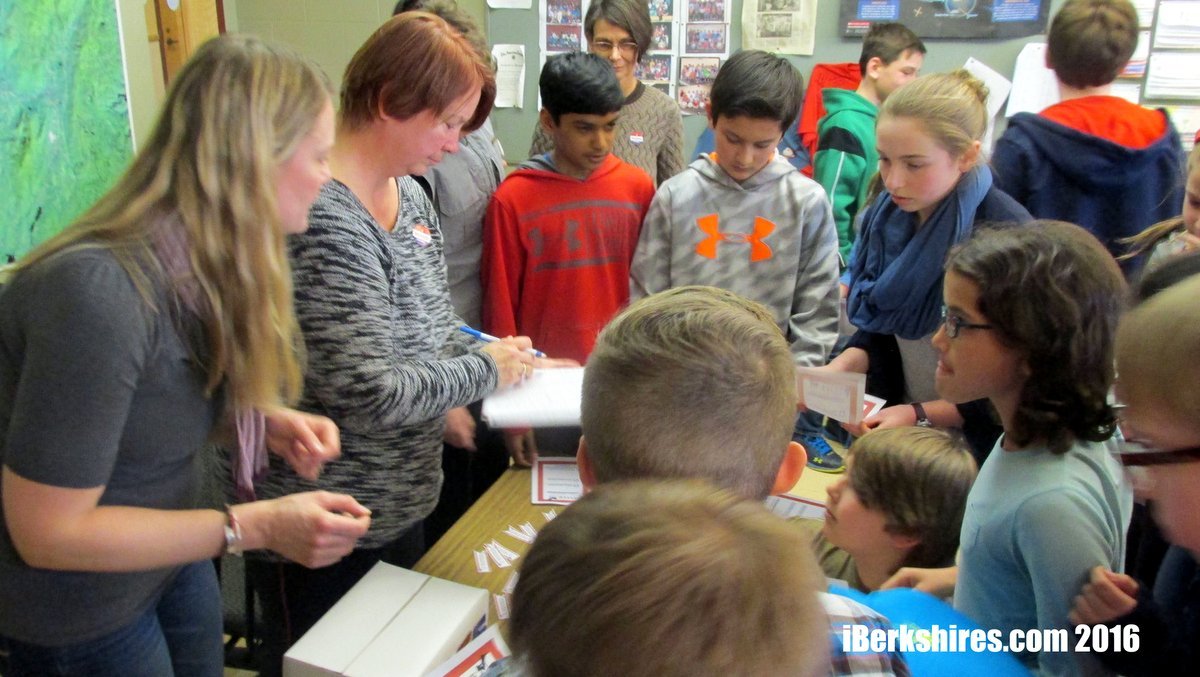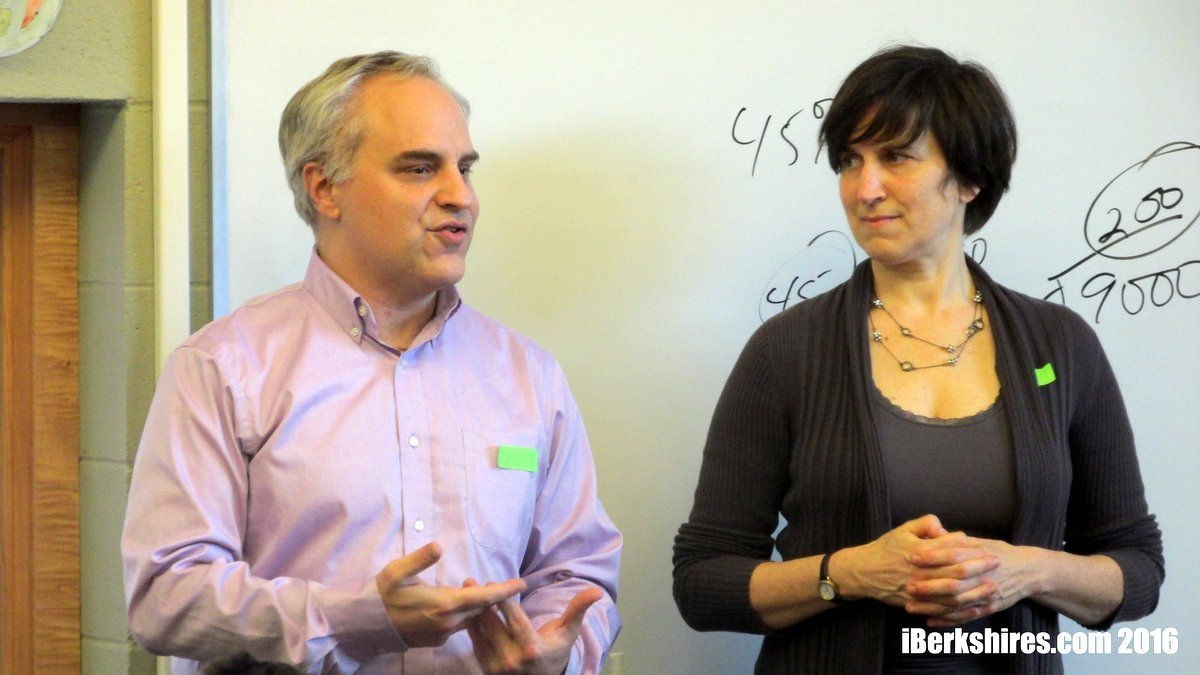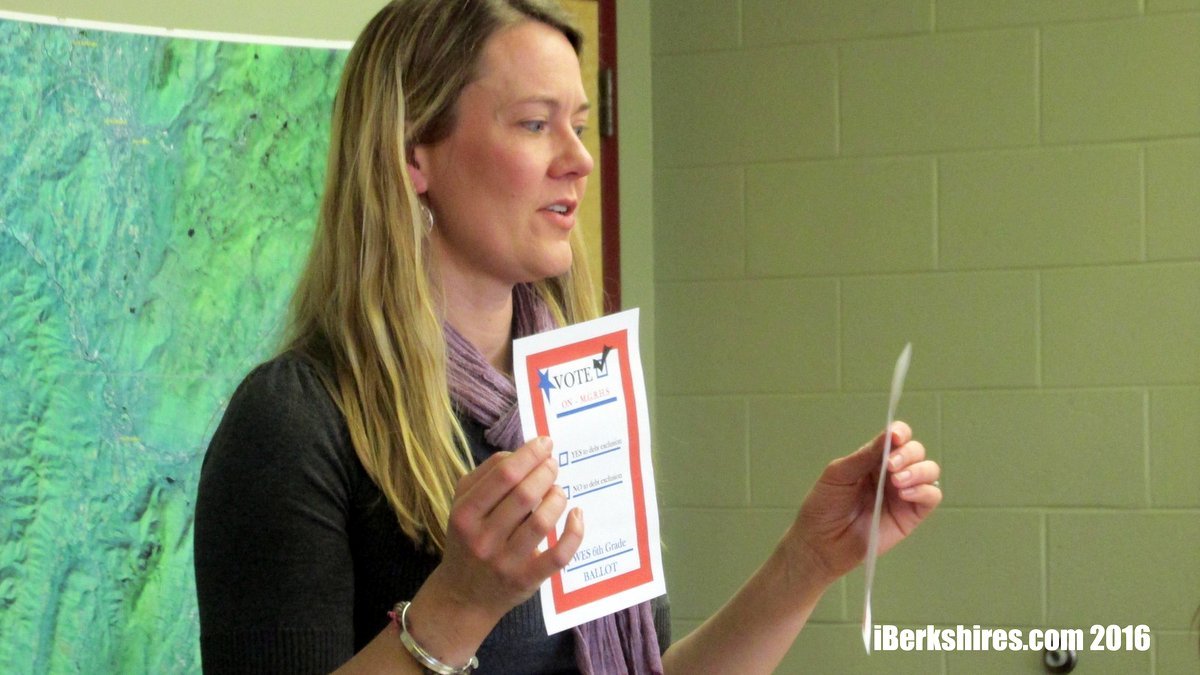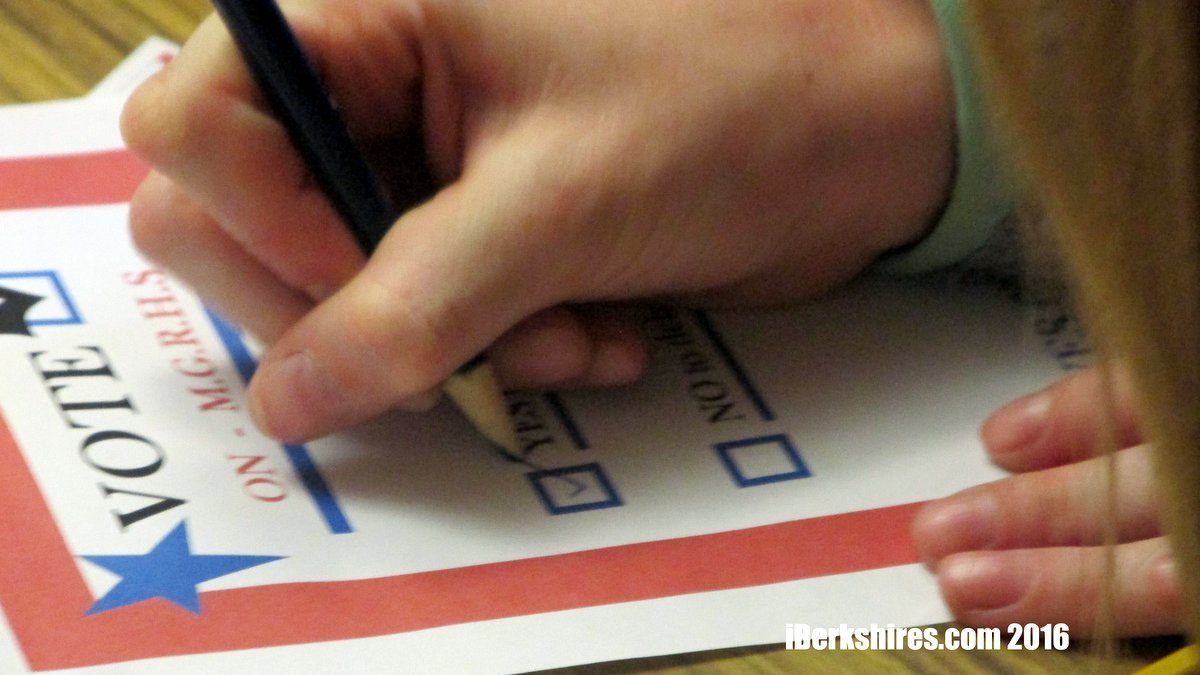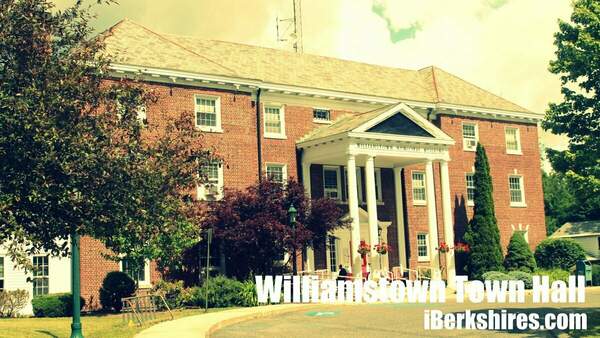Williamstown Sixth-Graders Receive Civics Lesson
WILLIAMSTOWN, Mass. — Last week, the voters of Williamstown overwhelmingly supported an initiative that would allow the town to fund a renovated and expanded Mount Greylock Regional School.
It is a fair guess that many of the voters did not understand their choice as well as a group of Williamstown Elementary sixth-graders.
Sure, the voters knew the project would be expensive and would necessitate a tax increase if it ultimately passes muster in Lanesborough. But not everyone may be familiar with language like, "Shall the Town ... be allowed to exempt from the provisions of proposition two and one-half, so-called, the amounts required to pay for the Town's allocable share of the bond … ."
But thanks to an impromptu civics lesson from Town Manager Jason Hoch and Selectwoman Anne O'Connor, those sixth-grade pupils were able to explain the idea to their parents on that Tuesday night.
First, Hoch drew a diagram on the classroom white board that depicted the town's total property value and drew a line that shows the percentage of that value that can be collected in property taxes in a given year.
"That's where, in a normal year, when normal things happen, we can't ask for more than that in taxes," he said. "This line goes up by a very small amount each year. …'the provisions of proposition two and one-half,' basically, in real English, means what we need from you in taxes can't go up more than 2-1/2 percent per year.
"So what we're asking today is permission to temporarily move this line up a little bit for the next 29 years, and the voters will tell us if it's OK to move that dotted line because we have to pay for the high school."
The voters did give that OK — echoing a 50-4 outcome of a "vote" the sixth-graders held after listening to O'Connor and Hoch.
The pair started with a little lesson on town government, and O'Connor explained her role in the process as a member of the Board of Selectmen.
Then they moved on to the question that — along with the presidential primary — closed down the school's gymnasium for the day on Tuesday.
"Building schools is not very cheap," Hoch said, referring to the building project that proponents hope will be completed by the time this year's sixth-graders are finishing up the eighth grade. "You guys are lucky to be in a relatively new [elementary school] building. The people in Williamstown and Lanesborough have had conversations for several years about the high school."
And part of that conversation, Hoch explained, took place in Boston.
"The good news is that the state government thinks school buildings are important," he said. "School districts like Mount Greylock ask for help. There's a long line, and Williamstown and Lanesborough have been in line for a while. The state has said: If both towns want to go forward, we'll pay you about 60 percent [of the cost]."
The children were attentive and asked logical questions: Why are Lanesborough and Williamstown voters not voting on the same day? (Lanesborough wanted to give its voters more time to think about it) Is this the last vote? (Yes if both towns say yes. If one town says no, voters may be asked a second time) What if the vote in either town ends in a tie? (There would be a recount, and, if it's still tied, it would be a no vote because both towns have to definitively say yes to move forward).
The classes also heard a little about what all those other property taxes help pay for.
"If you didn't pay the snow plows, you wouldn't be able to get through the roads and get to school," O'Connor pointed out.
"Don't give them any ideas," Hoch quipped.
Tags: civics, school project, WES,

